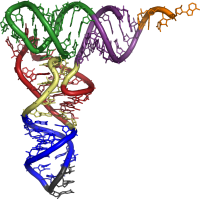| Pages in topic: [1 2] > | Is our profession becoming overgooglified? Thread poster: Paul Dixon
|
|---|
Paul Dixon 
Brazil
Local time: 18:36
Portuguese to English
+ ...
I have been led to open this thread because I have recently had some concerns about the overgooglification of our profession. Unfortunately, some translators (only a small minority, thank goodness) have been using Google as the main, or even the exclusive, source when checking the validity of a translation or choosing between two options. However, many pitfalls lie lurking in the shadows, waiting to pounce on the incorrigible Googlemaniac. To explain:
1. Recently someone recently tr... See more I have been led to open this thread because I have recently had some concerns about the overgooglification of our profession. Unfortunately, some translators (only a small minority, thank goodness) have been using Google as the main, or even the exclusive, source when checking the validity of a translation or choosing between two options. However, many pitfalls lie lurking in the shadows, waiting to pounce on the incorrigible Googlemaniac. To explain:
1. Recently someone recently translated a term from Portuguese to English giving as the only justification "16.4 million hits on Google UK". As it turned out, the translation was actually wrong, a false cognate. By way of curiosity, I checked out how many hits the correct translation of the term would have - only 8.8 million. So it seems that the translator thought well, if it has more hits on Google it must be correct - which is not always the case.
2. On other occasions, translators have used Google hits as a criterion for choosing between two or more options, regardless of context. Consider for example the Portuguese word "iniciar" which can be translated as initiate or begin (Taylor, J. L. - Portuguese-English Dictionary, Rio de Janeiro, Record, 2007), start, start up or set up (Serra, A. K. - Dicionário de Comércio Exterior, São Paulo, Aduaneiras, 2004). The incorrigible Googlophile would tend to choose "start" as the translation (2,070 million Google hits - MGH) rather than "initiate" with only 29 MGH. The point is, however, that each of these options has its own usage, and, as Partridge well points out in the entry "start" in "Usage and Abusage" (Penguin, London, 1999), even "begin" and "start" are not exactly the same.
So, my point for discussion here is:
1. Should the number of Google hits be used as a way to choose between several translations (my answer is a definite no) and, if so, to what extent?
2. What use, if any, is Google surfing to a translator? As I see it, the only use of Google for a translator is to find a site which could then be given as a reference, or from which the translator could extract an example sentence. ▲ Collapse
| | | |
Paul Dixon wrote:
1. Should the number of Google hits be used as a way to choose between several translations (my answer is a definite no) and, if so, to what extent?
2. What use, if any, is Google surfing to a translator? As I see it, the only use of Google for a translator is to find a site which could then be given as a reference, or from which the translator could extract an example sentence.
1. It could be one, very minor, factor to be considered in choosing. In general, though, I agree with your "no."
2. I use Google to find sites where I can see how professionals in the field use the term. In other words, I use judgment and discrimination!
Google (like KudoZ) is a tool. If you don't know how to use it, it's not merely useless; it's potentially damaging to the quality of a translation.
| | | | Samuel Murray 
Netherlands
Local time: 23:36
Member (2006)
English to Afrikaans
+ ...
| One answer to Paul's two questions | Nov 15, 2008 |
Paul Dixon wrote:
1. Should the number of Google hits be used as a way to choose between several translations (my answer is a definite no) and, if so, to what extent?
I think "yes". But it has to be done intelligently.
I remember reading a site about men's preoccupation with size, where the author noted X million hits for small penis, not realising that his search results included all sites matching "small" as well as all sites matching "penis". The same goes for translators using Google -- one must understand the search engine's indexing a little bit and be able to get intelligent results to begin with.
In your example case, the translator assumed that Google UK indexes only sites from the United Kingdom, and he probably did not perform any negative searches (searches that try to disprove a hypothesis) either. It is possible that he did not perform any combination searches (in which the term is combined with other terms which would include only results from certain subgroups of users) or subdomain searches (eg .ac.uk versus .co.uk).
| | | | | As always, it depends on the user | Nov 15, 2008 |
Intelligent translators use Google intelligently and profit from it.
Not so clever translators... well, you have just told use what they do.
Here is a particularly clever example of how Google can be used by translators:
http://www.multilingual.ch/search_interfaces.htm
Dan... See more Intelligent translators use Google intelligently and profit from it.
Not so clever translators... well, you have just told use what they do.
Here is a particularly clever example of how Google can be used by translators:
http://www.multilingual.ch/search_interfaces.htm
Daniel ▲ Collapse
| | |
|
|
|
Keith Boak 
Portugal
Local time: 22:36
Portuguese to English
+ ...
| Internet Search Engines have their uses.. | Nov 15, 2008 |
1. No. Clearly quantity has nothing to do with quality, ie. context. However, when I am uncertain about some specific terminology for a very technical translations, I sometimes find it helpful to search the term using Google, but with some additional qualifying words which help to provide context.
2."Surfing" implies an element of randomness, which is probably not a great deal of help to the translator. However, when I use Google, I don't think of myself as "surfing", but as making use of ... See more 1. No. Clearly quantity has nothing to do with quality, ie. context. However, when I am uncertain about some specific terminology for a very technical translations, I sometimes find it helpful to search the term using Google, but with some additional qualifying words which help to provide context.
2."Surfing" implies an element of randomness, which is probably not a great deal of help to the translator. However, when I use Google, I don't think of myself as "surfing", but as making use of a powerful research tool. ▲ Collapse
| | | | | Using Google to search specific resources | Nov 15, 2008 |
The symptom described by Paul rings a bell to me - except that it has been around for much longer than Paul seems to think. When I first created a profile on this site (seven years ago), it already wasn't uncommon to see KudoZ questions where some answers used the "because there are a zillion hits on Google" phrase, or a variety of it. This is not a new trend, but I agree that it is intensifying.
I use Google every day. But I don't just type a search term and the name of a language,... See more The symptom described by Paul rings a bell to me - except that it has been around for much longer than Paul seems to think. When I first created a profile on this site (seven years ago), it already wasn't uncommon to see KudoZ questions where some answers used the "because there are a zillion hits on Google" phrase, or a variety of it. This is not a new trend, but I agree that it is intensifying.
I use Google every day. But I don't just type a search term and the name of a language, to find any site that could potentially give me the answer. I use it to search within specific resources. In my opinion, most of what can be found on Google is inaccurate, and only a minority of results is usable. I have a list of resources on the Web that I have decided are reliable, and I use Google to search only within those resources. I sometimes do broader searches, too, but only in cases where the term I'm looking for is clearly uncommon and I don't have a clue what it means. But even then, I search for the meaning, and not for the translation. So, Google is extremely useful for doing searches within a translation setting. It's just that a large portion of freelance translators doesn't use it right.
I see an underlying danger beneath this phenomenon. The more translators accept just about any result found on Google, the more Google will be populated by such inaccurate information. We all know that we produce translations which eventually make it online, in full or in part. So, part of our translations are being uploaded on the Web, and they eventually get indexed by search engines. This means that freelance translators often add to the erroneous corpora already online. So, the more freelance translators think they can rely on the number of hits on Google, the more the gap between the number of hits for correct terms and the number of hits for erroneous terms will widen. The number of erroneous terms is growing exponentially, in part thanks to freelance translators.
I think it's time for many freelancers to take their work seriously... And, for chrissakes, learn to use Google properly! ▲ Collapse
| | | | | A memory prompter | Nov 15, 2008 |
Paul Dixon wrote:
1. Should the number of Google hits be used as a way to choose between several translations (my answer is a definite no) and, if so, to what extent?
I actually use Altavista more often than Google. Maybe I'm wrong, but I get the impression that the hits I get on Altavista are less influenced by SEO and cash. I often find it useful to search on Altavista for "Images".
Most of my Google searches in translation are to use the define: command, so I can see what a bunch of dictionaries say about a certain word.
Anyway, I consider that any search, Proz Kudoz and Wikipedia included, are mostly memory prompters, and not solution finders. If I need such searches to find the meaning and the translation of a word, I'll use them again to seek endorsement from reliable sources, not merely hits, too many of which may be from people who know as little as myself.
My tenet is that if I don't understand the source text, or if I'd be unable to write about that subject in the target language, I shouldn't be translating it. I carefully keep a list of competent colleagues in my pair who specialize in the areas where such shortcoming of mine is most likely (e.g. medicine, accounting), to refer translation prospects bearing this kind of material.
| | | | Amy Duncan (X) 
Brazil
Local time: 18:36
Portuguese to English
+ ...
| Keep Google in its place | Nov 15, 2008 |
I've observed in my day-to-day translating work that Google is almost always my last resort. If I don't know the word or phrase, I'll try to get some satisfaction from various dictionaries. Then I'll check the ProZ term search to see what's there. If I don't find what I want, then I turn to Google, but rarely settle on anything because of the highest number of hits. That can be a trap, as you pointed out, Paul.
By the way, Paul, I'm putting "overgooglification" and "Googlemaniac" in... See more I've observed in my day-to-day translating work that Google is almost always my last resort. If I don't know the word or phrase, I'll try to get some satisfaction from various dictionaries. Then I'll check the ProZ term search to see what's there. If I don't find what I want, then I turn to Google, but rarely settle on anything because of the highest number of hits. That can be a trap, as you pointed out, Paul.
By the way, Paul, I'm putting "overgooglification" and "Googlemaniac" into my personal glossary. Or wait....maybe I should check to see how many Google hits I get for each one first. ▲ Collapse
| | |
|
|
|
| Finding info vs finding a translation | Nov 15, 2008 |
I happen to remember the very first time I used Google to help me translate. The text, in Spanish, referred to X as the "gobernante" (one who governs, roughly) of Y country. It was around 3 am, I knew nothing of the history of Y, and had no idea how to translate "gobernante"--ruler? king? president? governor?
I googled X's name, discovered that he was president of Y, and knew how to translate the term.
Nothing beats an Internet search engine in a situation like that.
| | | | | Alternatives | Nov 15, 2008 |
A very good one is Scholar Google: http://scholar.google.com/ where you will avoid the full of mistakes forums and you will get academic texts only.
Another option is the use of a corpus like the British National Corpus: http://www.natcorp.ox.ac.uk/ The problem is that the free search is very limited, may be ... See more A very good one is Scholar Google: http://scholar.google.com/ where you will avoid the full of mistakes forums and you will get academic texts only.
Another option is the use of a corpus like the British National Corpus: http://www.natcorp.ox.ac.uk/ The problem is that the free search is very limited, may be not suited for somebody who translate to English, but I suppose the paid search tool should be good. For Spanish language we have the "Corpus de Referencia del Español Actual (CREA)": http://corpus.rae.es/creanet.html with a good and free search interface. ▲ Collapse
| | | | | Using Google... | Nov 15, 2008 |
... or other search engines alone is not enough. I always check multiple Websites, the source of the documents, the context, the meaning of the word in other dictionary, etc.
Never pick a word just because it is contained in the highest number of hits or similar.
| | | | Giles Watson 
Italy
Local time: 23:36
Italian to English
In memoriam | Another alternative is to know what you're looking for | Nov 15, 2008 |
RNAtranslator wrote: A very good one is Scholar Google: http://scholar.google.com/ where you will avoid the full of mistakes forums and you will get academic texts only.
RNAtranslator is absolutely right. Google is a vast multilingual corpus but you have to know what you're looking for to get any benefit from it.
Today, for example, I had a strange IT>EN phrase describing a wine that was "leggermente contratto nei profumi". The problem was that "contratto" is standard Italian winespeak for a palate that is "clenched" (or "cropped") by excessive extract, but is not commonly used to talk about a wine's nose.
With Google, it took about a minute to search for the string "slightly * aromatics" and find quite a few promising solutions ("muted" is my current favourite).
I have been translating professionally on and off since 1975. I wouldn't say Google has improved my translation skills but it does enable me to apply them much more quickly than I could 30 years ago.
Giles
| | |
|
|
|
Phil Bird
United Kingdom
Local time: 22:36
Spanish to English
+ ...
| Another option | Nov 16, 2008 |
RNAtranslator wrote: A very good one is Scholar Google: http://scholar.google.com/ where you will avoid the full of mistakes forums and you will get academic texts only. Another option is the use of a corpus like the British National Corpus: http://www.natcorp.ox.ac.uk/ The problem is that the free search is very limited, may be not suited for somebody who translate to English, but I suppose the paid search tool should be good. For Spanish language we have the "Corpus de Referencia del Español Actual (CREA)": http://corpus.rae.es/creanet.html with a good and free search interface.
try http://corpora.byu.edu to get some very useful corpora tools - Google is very useful, but you have to be very careful...
| | | | Neil Coffey 
United Kingdom
Local time: 22:36
French to English
+ ...
| Estimated number of results is only approximate! | Nov 16, 2008 |
Aside from whether this number should be a criterion or not, the "estimated number of results" that Google gives at the top of a search result is only an APPROXIMATION. Usually this is a reasonable guide. But occasionally, it happens that the estimation is wildly out. For example, I've seen cases where the estimation is X thousand results, but then when you actually try and go to (say) the 2nd page, it turns out there are less than 100 results. Even if you try and query Google computationally in... See more Aside from whether this number should be a criterion or not, the "estimated number of results" that Google gives at the top of a search result is only an APPROXIMATION. Usually this is a reasonable guide. But occasionally, it happens that the estimation is wildly out. For example, I've seen cases where the estimation is X thousand results, but then when you actually try and go to (say) the 2nd page, it turns out there are less than 100 results. Even if you try and query Google computationally in order to verify the number of results, Google actually stops giving out results past a certain number (used to be 500). So even via a computer program, it is virtually impossible to verify whether or not there really are "8.2 million results" for a given term.
If you absolutely must use such figures, it's possibly worth trying to corroborate them in some way-- for example, comparing (relative) figures given by Google vs (say) Alexa, or making the judgement based on several related searches. (As an example, in a study I did on spellings of -eler/-eter verbs in French, I did use Internet search results, but at least tried to combine various reported estimates to arrive at each figure. Oh, and see http://www.french-linguistics.co.uk/grammar/spelling_eler_eter.shtml if you happen to be interested in the spellings of French verbs...!)
For programmers, the Alexa provides an API, so you actually *can* verify to some extent that the claimed instances really do exist.
Interestingly, numbers of results reported by search engines are starting to creep into Academic studies. So for example, a researcher or grammar writier will use the number of reported search results as an indication of whether a particular form is dying out. I hope that people know to treat such figures with appropriate quantities of salt. When Google tells you that there are so many instances of a given string, that doesn't necessarily mean that there really are. ▲ Collapse
| | | | Phil Bird
United Kingdom
Local time: 22:36
Spanish to English
+ ...
| PDF search... | Nov 16, 2008 |
Don't think anyone mentioned this, but sometimes searching only for PDFs is better - it's still not failsafe though....
| | | | | Pages in topic: [1 2] > | To report site rules violations or get help, contact a site moderator: You can also contact site staff by submitting a support request » Is our profession becoming overgooglified? | Trados Studio 2022 Freelance | The leading translation software used by over 270,000 translators.
Designed with your feedback in mind, Trados Studio 2022 delivers an unrivalled, powerful desktop
and cloud solution, empowering you to work in the most efficient and cost-effective way.
More info » |
| | Anycount & Translation Office 3000 | Translation Office 3000
Translation Office 3000 is an advanced accounting tool for freelance translators and small agencies. TO3000 easily and seamlessly integrates with the business life of professional freelance translators.
More info » |
|
| | | | X Sign in to your ProZ.com account... | | | | | |















